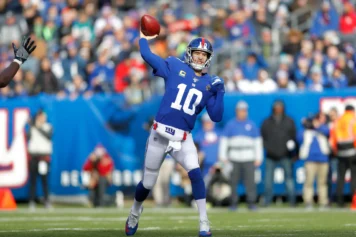The 29-year-old Congresswoman has conservatives shaking in their boots and Ta-Nehisi Coates helps us find out why.
Earlier this week, Martin Luther King Jr Day was celebrated in the United States.
For some, it’s a day of reflection on the continuous fight for civil and human rights. I braved some face-numbing winds that ripped my body mercilessly en route to Harlem’s Riverside Church, where an event was being hosted to commemorate King’s “Beyond Vietnam: A Time to Break Silence”, which took place there in 1967.
The affair, MLK Now, was hosted by journalist Jemele Hill and featured readings, performances and discussion by Alexandria Ocasio-Cortez, Ryan Coogler, Ta-Nehisi Coates, Common, Cicely Tyson, John David Washington and Raheem DeVaughn, among others.
Hosted by Blackout for Human Rights with Color of Change and Faith in Action, MLK Now is fast becoming a tradition. It has sold out religiously over the past three years.
The newly-minted U.S. Representative from the Bronx, Ocasio-Cortez, is likely the most controversial Democrat in Washington due her outspoken nature and willingness to go toe-to-toe with the lumbering political dinosaurs on Capitol Hill.
She was engaged in an hour-long discussion with acclaimed author and commentator Ta-Nehisi Coates regarding why MLK’s legacy matters today, why the economic pivot he made toward the end of his life needs to be carried out further for an equitable society, her proposed 70 percent marginal tax rate and more.
https://www.youtube.com/watch?v=J8ow8dplu7E
Here’s a sample from their conversation.
Ta-Nehisi Coates: People seem obsessed with you on social media. How have you been able to handle that?
Alexandria Ocasio-Cortez: For me, it’s not something that I take very personally. My mother taught me at a very early age. Growing up, we had to go to school in a very affluent suburb. My mother had a job of a domestic worker. She was cleaning the homes of people like the kids I went to school with.
Often, I would go with her. It was a lesson in class and poverty. When you grow up in poverty, or in that cusp of working class and poverty, in and out, my mother really taught to not pay any mind to people who were just trying to put you down a peg so that they could puff up their own self-worth.
For me, my struggle is not that. My struggle is understanding the strategy that people will attack the messenger in an attempt to discredit the message.
TC: Why do you respond?
AOC: I struggle with it, but I’m very sure to assert myself and not let them say that. Not because I take it personally, but because I don’t want the message of what we’re actually talking about being discredited because they discredit the person who’s trying to deliver it.
They did the same thing to Dr. King, by the way. When he came here to give his Vietnam speech, there was no coincidence that all of the retroactive television specials have a very rosy interpretation of Dr. King.
Toward the end of King’s life, he started to pivot into much more complex and difficult causes. He started bringing up issues that are very complicated today. He was talking about American imperialism.
During the Cold War he was talking about how the United States was supporting corrupt governments to gain an advantage over the Russians during the Cold War. He was talking about economic concerns the day before he was assassinated.
He wasn’t just with the NAACP, he was with workers trying to unionize for legal rights. It was when he started getting into this economic message that things started getting very dangerous for him. Today, that is where we are picking up.
TC: Why is Martin Luther King Jr relevant today?
AOC: What we’re seeing today are issues that he was already warning us about back then.
People always say that the sacrifice Dr. King made was with his life, which is true, but it wasn’t just the end of his life. It was the way he lived his life. He was targeted, he was wiretapped. These are all things that we know.
These are the things that they did to him and it’s no surprise that we see these kind of attacks against people who try to speak truth to power today.
TC: Why is activism important today?
AOC: I think of self government as extending far beyond people and the processes of elected office. I believe activism is a part of our self government. Like how journalism is called the fourth estate, activism is part of the process of checks and balances as well.
If you do not have environment or culture with robust activism then governance goes astray. Part of the job of elected public office is translating public will into the law of the land.
Who shapes, who directs and who moves that public will? Writers, journalists, activists, artists. They shape the public will.



